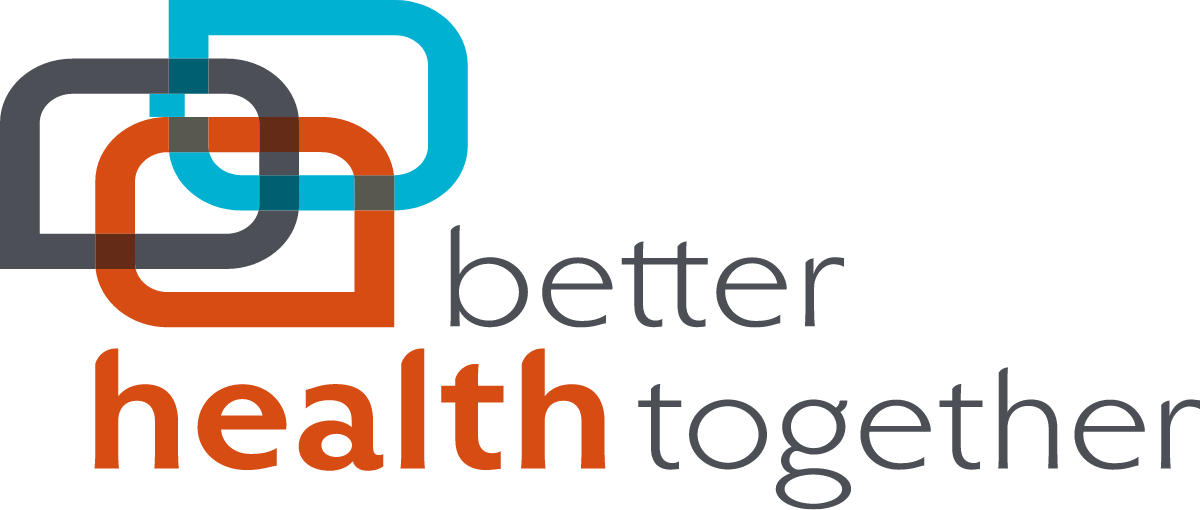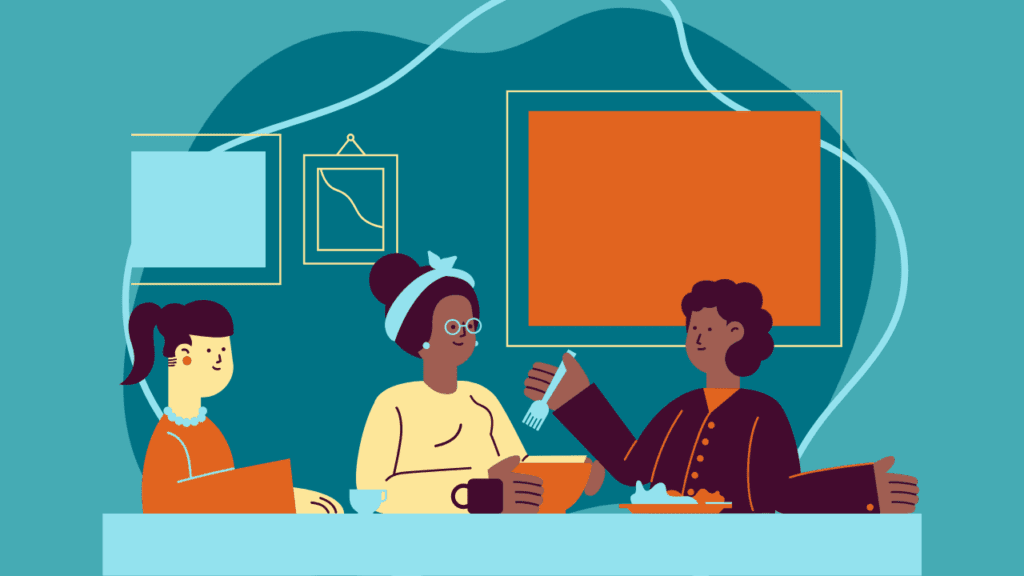[Download this web page in PDF form]
Background
Better Health Together (BHT) is an Accountable Community of Health (ACH) representing a six-county region in Eastern Washington, including Spokane, Lincoln, Adams, Ferry, Pend Oreille, and Stevens counties. As the backbone organization of our ACH, BHT is convening and coordinating organizations who impact health to participate in Medicaid Transformation; a five-year opportunity to radically improve health through innovative and cooperative redesign of the Medicaid delivery system. These efforts are tied to the state’s Healthier Washington Initiative, and made possible by the state’s successful acquisition of an 1115 Medicaid Waiver.
BHT’s vision is an integrated community health system, accountable to improving health through delivering quality whole-person care and addressing health inequities. Our goals are to:
-
improve access to integrated whole-person care;
-
optimize the use of community resources;
-
and promote health equity for all, by all.
Transformation Projects
The BHT selected four project areas from the list of projects in the HCA MTP Toolkit:
-
Bi-directional integration of behavioral and physical healthcare for Medicaid patients with both a behavioral health issue and a chronic disease;
-
Chronic disease management for Medicaid adults with diabetes and Medicaid beneficiaries with co-occurring chronic disease and behavioral health issues;
-
Opioid response for Medicaid beneficiaries who use, misuse, or abuse prescription opioids and/or heroin;
-
Community-based care coordination for people transitioning out of jail.
BHT Priority Areas
In addition to the above four areas of transformation, the Board approved four priority areas:
-
Reduce unintended pregnancies
-
Reduce jail recidivism
-
Improve oral health
-
Increase behavioral health access
Collaboration and Coordination
Throughout the Waiver, primary care and behavioral health settings will work in partnership with social determinants organizations, public health, EMS, and county agencies to meet regional improvement goals. As we implement projects, it is important to identify opportunities to weave together efforts and resources for more efficient and effective health care delivery.
In 2018 BHT formed the Collaboratives, county-based groups consisting of partners from all settings to participate in setting local direction and reaching goals and to serve as the activation network for Transformation Projects. In 2019, based on the technical assistance needs identified in Transformation Plans submitted, BHT kicked off the Learning Cohorts. The Learning Cohorts were designed to support behavioral health and primary care organizations for contract readiness and implementation of Transformation Plan activities.
Purpose
BHT is inviting transformation plan applications from providers of social determinant of health[1] (SDoH) services who will partner with health care providers to plan and deliver (SDoH)-related services to Medicaid enrollees in the region. The primary goals of this funding opportunity are to:
1) Catalyze partnerships between SDoH providers and health care providers for the benefit of Medicaid enrollees, in alignment with the four Transformation projects that BHT has selected.
For example, SDoH and health care entities might collaborate to address housing conditions that can exacerbate asthma, with the goal of reducing asthma-related emergency department visits among Medicaid-covered youth (in alignment with the chronic disease prevention project). Or organizations might work together to provide coordinated social and clinical support to Medicaid-eligible individuals with mental illness who are discharged from jail (addressing bi-directional integration of care).
2) Build infrastructure among SDoH provider organizations for sustainable partnerships with health system entities. Experience to date[2] suggests that partnerships are more successful when relationship building, and organizational dynamics are addressed explicitly and when steps are taken to build capacity for data sharing & use, contract & payment negotiation, and other operational aspects of partnership.
BHT is particularly interested in partnerships that address housing, transportation, and access to healthy food for Medicaid populations, but will consider applications that focus on other social needs or social determinants of health. Proposed SDoH services and/or interventions should improve Medicaid enrollees’ ability to engage with or benefit from clinical care, and/or help primary care and behavioral health providers serve Medicaid populations more effectively.
Eligibility
Eligible applicants are organizations that are:
-
Based in BHT’s region.
-
Offer services that address social needs or SDoH, benefitting the BHT region’s Medicaid population.
-
Have a current Memorandum of Understanding (MOU) with BHT as member of one of the county-based Collaboratives, as a clinical partner (primary care or behavioral health), or as a Tribal carve-out partner. If the applicant organization already has a clinical Transformation Agreement or Tribal Agreement with BHT, the project proposed in this application should represent new work.
In addition to these requirements, applicant organizations must:
-
Demonstrate that the proposed project is of value to health care entities by including in its application a letter of support and partnership commitment from at least one primary care or behavioral health clinical partner.
-
Demonstrate that the proposed project has the support of the county-based Collaborative(s) for each county in which the project will operate. Support may be document via a formal letter of support from the Collaborative or in less formal ways (e.g. Collaborative meeting minutes). BHT staff can help facilitate connections to Collaboratives as needed.
-
Demonstrate that BHT funding is not the
sole source of financing for the project. BHT is not requiring any specific proportion of the total project budget to be funded from other sources but intends to invest in projects and partnerships that have at least some external support. Non-BHT funding may be in-kind and does not have to be administered directly by the applicant organization. For example, if an SDoH provider is working with a clinical provider to respond to patient needs identified through a standard SDoH screening and the clinical provider has invested money to capture and share screening data, that investment may be counted as non-BHT project financing. -
Attest that they have completed BHT’s organizational Equity Assessment, which will be open until October 18th.
Selection Criteria
The award process will be competitive. BHT will make award decisions based on:
-
Project alignment with BHT’s vision and goals and with Medicaid Transformation objectives.
-
Strength of the proposed project or plan, including how well the project or intervention design supports the applicant’s goals and the feasibility and appropriateness of the project budget.
-
Project potential to improve the health status of Medicaid enrollees (or reduce the degree to which socioeconomic factors hinder the effectiveness of clinical services) and to create and/or sustain partnerships between SDoH and health care providers.
Award Information
A total of $2,000,000 is available under this funding opportunity for a two-year period (March 2020 – February 2022). BHT anticipates funding up to 10 partnership projects at approximately $200,000 each but reserves the right to fund a larger number of smaller-budget projects, or a smaller number of larger projects. SDoH provider organizations are welcome to submit joint applications with requested budgets of above $200,000 if the joint application is relevant for the project goals.
Award funds will be disbursed to successful applicants as follows:
-
50% of funds will be released at the beginning of the project period.
-
25% of funds will be earned for progress toward project milestones proposed by the applicant and approved by BHT. Depending on the timing of project milestones, BHT anticipates dividing this payment into three portions:
-
5% at 6 months (if relevant for the project; otherwise 15% at 12 months)
-
10% at 12 months
-
10% upon completion of project reporting requirements at 24 months
It will be possible for awarded entities to earn a portion of this 25% if they meet some but not all of their proposed milestones at each time point.
-
-
25% will be earned upon achievement of a small number of Pay-for-Achievement (P4A) measures selected by the awardee from a menu developed by BHT (refer to attachments). Applicants will choose two P4A measures for the first year of the award and add another two for the second year. This portion of the funding is fully at risk; no payment will be made for a given measure if the achievement target is not met. Payments will be made based on reporting at 12 and 24 months.
-
12.5% at 12 months (divided between 2 P4A measures)
-
12.5% at 24 months (divided across 4 P4A measures)
-
Use of Funds
Awards may not be used to directly fund Medicaid-billable services, or services covered in contracts between Medicaid managed care organizations and the clinical partner(s) involved in the project. The expectation from CMS for Initiative 1 DSRIP earned incentives is that providers would reinvest those dollars into their system in positive ways and all investments support the goals of Medicaid Transformation.
Acceptable uses of these awards include but are not limited to services, staffing, materials, interpretation or translation, staff training, software or IT tools, and travel.
Expectations of Awardees
Reporting
Awardees will be required to report on project progress and outcomes at regular 6-month intervals, with the first reporting cycle occurring in October 2020. See Award Information for more details about how funds disbursement is connected to reporting.
Learning Cohorts
In alignment with our goal of moving the region towards value-based payment, BHT intends to establish a Learning Cohort for SDoH providers and their partners, likely focused on models for shared savings and reinvestment in cross-sector partnerships. Awardees and their clinical partners will be expected to participate in the activities of this Learning Cohort, regardless of whether or not their proposed projects are intended to produce shared savings or incorporate a reinvestment component (these are not requirements). More details will be available in 2020.
Collaboratives
Awardees will also be expected to participate in the efforts of their relevant county-based Collaborative(s) to advance health equity and reduce health disparities.
How to Apply
Stage 1: Letters of Intent
Interested organizations must submit letters of intent if they plan to apply. Letters and their details are non-binding but are required to move forward.
Letter of Intent Submission:
Preferred method: organizations should fill out this form which will serve as their letter of intent.
Other method: Alternatively, a document-style letter of intent can be submitted via email to [email protected]. Letters should be no more than two pages and must include the following:
-
Applicant organization
-
Key contact(s) name, email, and phone
-
Project title
-
Brief project narrative description
-
Project goal(s) and draft aims, as well as projected outcomes
-
Target population
-
Names of partner organizations
-
Funding amount requested
[Download this web page in PDF form]
Stage 2: Proposals and Presentations
Based on review of the letters of intent, BHT will invite select applicants to advance to the full application phase. BHT intends to establish a proposal review committee consisting of BHT staff, consultants, and a small number of external partners representing both health care and SDoH provider perspectives. External partner reviewers will be required to declare any conflicts of interest and recuse themselves from review of specific proposals as needed.
BHT will be available to answer questions or provide consultation on preparation of proposals for a short period after invitations to apply are sent out.
Proposal Submission:
Preferred method: organizations should fill out this form which will serve as their proposal.
Other method: Alternatively, a document-style proposal can be submitted via email to [email protected]. Full proposals should be no more than 10 pages in length follow the SDOH Partner Proposal Requirements.
Oral Presentation
As part of the review process, once full proposals have been submitted, applicants will give a brief oral presentation of their proposed project to the review committee. The presentation is a chance to answer reviewer’s questions and make your case for funding. Participation is required. Presentations may be done remotely.
[Download this web page in PDF form]
Supporting Documents
Timeline
October 11, 2019 RFP released
November 8, 2019 Letters of intent due
December 6, 2019 Invitations to apply are issued (office hours and webinars provided at this point)
January 29, 2020 Deadline for full proposals
February 6, 2020 Tentative date for oral presentations of proposed projects
February 25, 2020 Notification of funding decisions
April 1, 2020 Contract Start Date
Questions
For questions about this RFP contact:
Charisse Pope at [email protected]
Kim Brinkmann at [email protected]
[1] Healthy People 2020 defines Social Determinants of Health as conditions (e.g., social, economic, and physical) in these various environments and settings (e.g., school, church, workplace, and neighborhood) in which people live, learn, work, play, worship, and age. See: https://www.healthypeople.gov/2020/topics-objectives/topic/social-determinants-of-health
[2] E. Miller, T. Nath, and L. Line, “Working Together Toward Better Health Outcomes,” Center for Health Care Strategies, Inc. (July 2017). https://www.chcs.org/resource/working-together-toward-better-health-outcomes; K. Griffin et al., “Partnerships Between New York City Health Care Institutions and Community-Based Organizations,” Greater New York Hospital Association and the New York Academy of Medicine (April 2018). https://www.gnyha.org/tool/report-on-partnerships-between-health-care-institutions-and-community-based-organizations/



